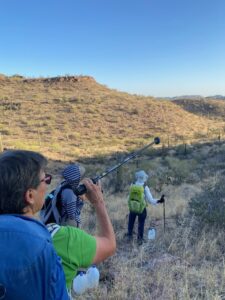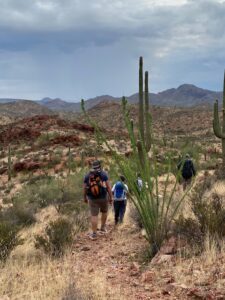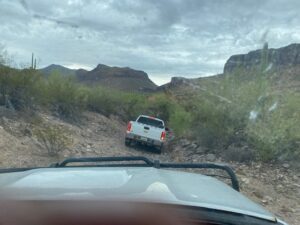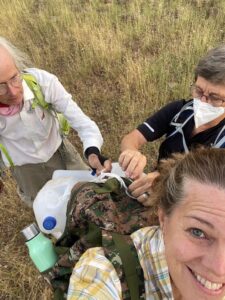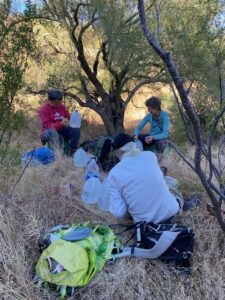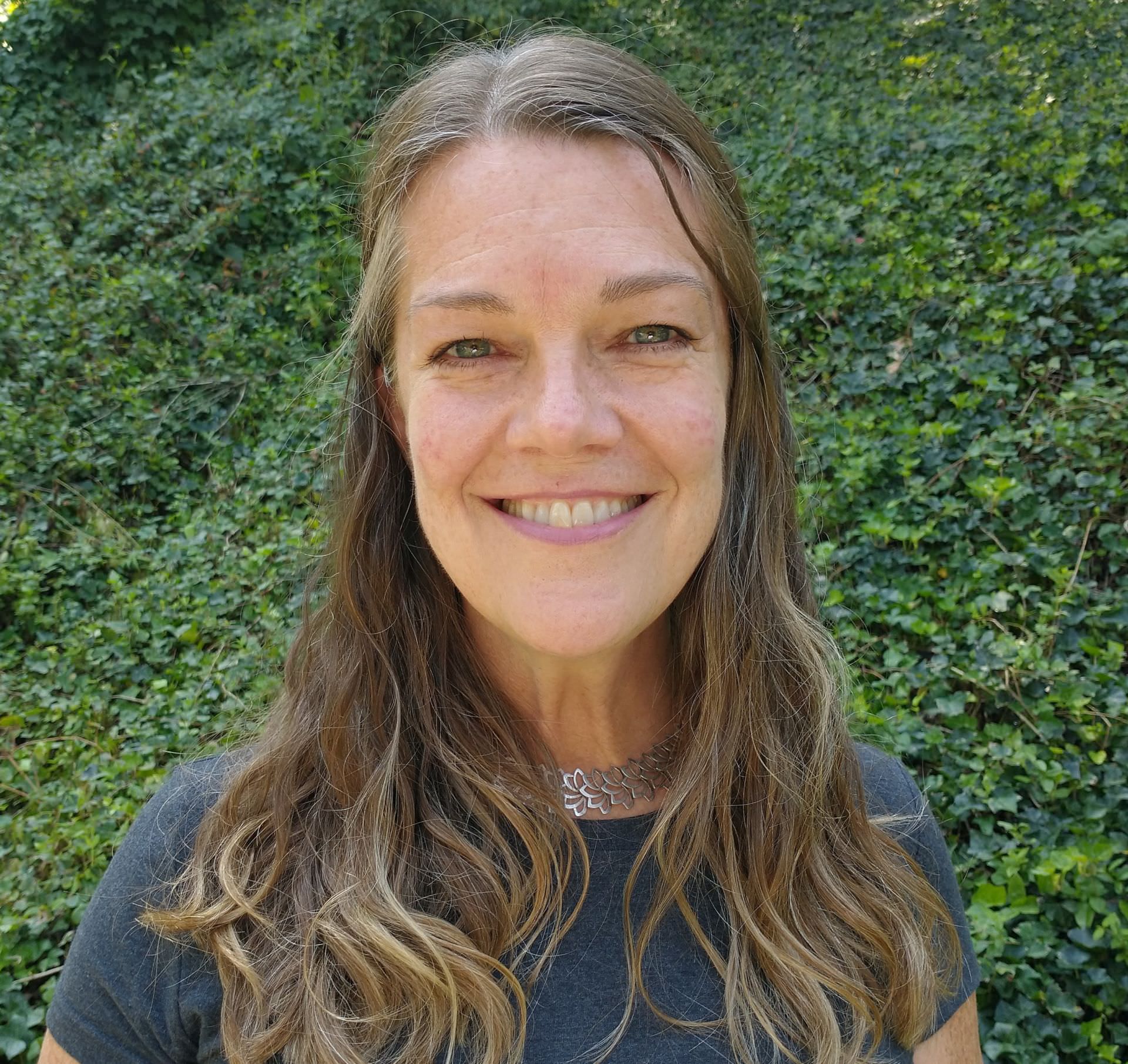Pressing Questions
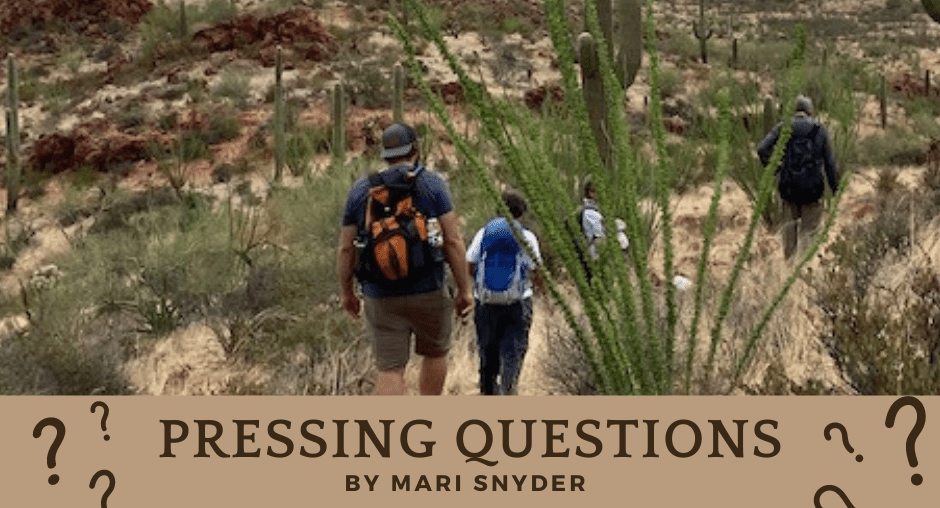
Editor’s Note: Lay Missioner Mari Snyder reflects on the hardships of migration as she follows a trail through the Sonoran Desert on the U.S.-Mexico border.
I invite you to look at the following picture and note your very first thought before reading further.
Yes, the Sonoran Desert and its mountains are simply stunning; they’re a cathedral. Neither the camera lens of my phone nor my words will do justice to the beauty, the expansiveness, the majesty and awe of this earthly wonder. It’s a delight to a hiker, a traveler and those who revel in the outdoors.
Your next thought…
Now step into the picture, into my hiking boots. For those of you who know me well, your next thought may be “Really? Mari’s hiking? She has hiking boots?!!” Fair enough. And yes, it certainly is breathtaking to gaze out on the sun-drenched formations and take in the far, faraway horizon.
But my most pressing thought…
My most pressing thought as I crested that daunting hill at the tail-end of the five-person line and snapped this picture was, “Will I be strong enough to carry my backpack with four-gallons-of-water for the rest of this day? Do I have the endurance to keep up with the others, especially in this heat? How do our next two trails today compare to this one?”
And with those questions, I humbly realized that I was walking in the migrants’ shoes – kind of. Yes, I was “in community” with the very likely thoughts of migrants who had traveled these passageways before me, and those already on their way, who, in the coming days, would drink the water we place under protective plastic cartons; eat the tuna and beans from the pull-tab cans; and leave the water bottles behind for us to recycle. But…
My companions and I will eat a cooked meal and sleep inside tonight. Migrants have no choice but to go on for several days, with little food and water and only the clothes on their backs to face the unrelenting heat of the day and the cold pitch of the night, and – God forbid – the rains. Some succumb. For those who succeed, it’s a long, long way forward.
I was in my head, as I often am, and I remained there – in my thoughts. In fact, I cast my eyes down because the horizon was too intimidating, and I needed to focus on where to place my hiking pole and feet given the terrain of rocks, dirt, and grass. I was sure to circle widely around long-spiked cacti and continually scanned our trail for the real possibility of rattlesnakes.
We live in a country of native peoples, immigrants, people who were brought here against their will, and all the descendants since. It’s been so long ago that I don’t know my family’s individual names and dates of immigration, but Ancestry tells me it goes back to Ireland, Germany and Holland. My family boarded ships to get here. Might they have desperately scrambled over a land border to reach the US if that had been an option?
And the thought I just cannot get out of my head…
I’ve just returned from my fourth two-day trip into the desert near Ajo, Arizona. I’ve grown in confidence and capability, so I now have more time for contemplation when I’m on a trail. And the thought I just cannot get out of my head is the out-of-options desperation a woman or man must be harboring to hurl themselves over a concertina wire wall and then through a fierce desert landscape for days. They are at real risk of losing their very lives. They’re fleeing all they know and the homeland they love because they fear for their lives and those of their children.
Reflection Question: Who makes this journey? Might we be the descendants of desperate people of a different time? Is it time we look at today’s migrants with eyes of compassion, as we would have wanted for our own ancestors, if they migrated to this country?
Tagged in:

